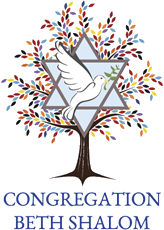And true to Halpern’s Rule #3—when everyone agrees about something, they are probably wrong—there is a vital aspect of the Exodus story that everyone seems to get wrong, including Cecil B. DeMille, who we all know was actually at the Exodus.
The Haggadah, the telling of the story of our liberation from slavery to freedom, leaves out the most dominant character in the entire story, the one person without whom there would have been no liberation.
Moses, yes! Moses, no! This is where Halpern’s Rule #3 comes in.
The tenth of the plagues, the killing of the first born, had just occurred, and a grief-stricken Pharaoh demands that the Israelites leave Egypt immediately. Israel quickly prepares to leave (hence the Matzah) before Pharaoh can change his mind—again. Very quickly Pharaoh realizes what he has done and sends his army to bring Israel back or maybe to just kill them– we are not totally sure which.
Israel is trapped between the Yam Suf (The Sea of Reeds) on the one side and the advancing Egyptian forces on the other. The people, as they have done and will continue to do, turn on Moses—thank you Moses for getting us killed. Moses tells the people that they are now going to witness something that has never, ever happened. He raises his staff and . . .
This is where everyone gets it wrong and why Moses is left out of the Haggadah.
God does NOT part the Yam Suf—not yet.
God says to the people—Why are you calling on me? Do it yourselves—go forward!
And it is only when Nachshon wades into the water that the sea parts.
The lesson: We cannot expect God to do things for us if we are not willing to do things for ourselves. God did not actually take us out of Egypt; God set the stage so that we could leave. And Israel had to leave the wealth and security of Egypt to wander into the wilderness. Similarly, Nachshon had to make the first move and wade into the water.
Moses had left it up to God. That is why we remove him from the story.
Passover is not only the story of the transformation from slavery to freedom, it is also a story of a people and of individuals whose acts of bravery transformed the lives of both them and their people.
The importance of taking action ourselves to bring about change rather than leaving it up to God: that, perhaps, is the most important lesson of Passover.
